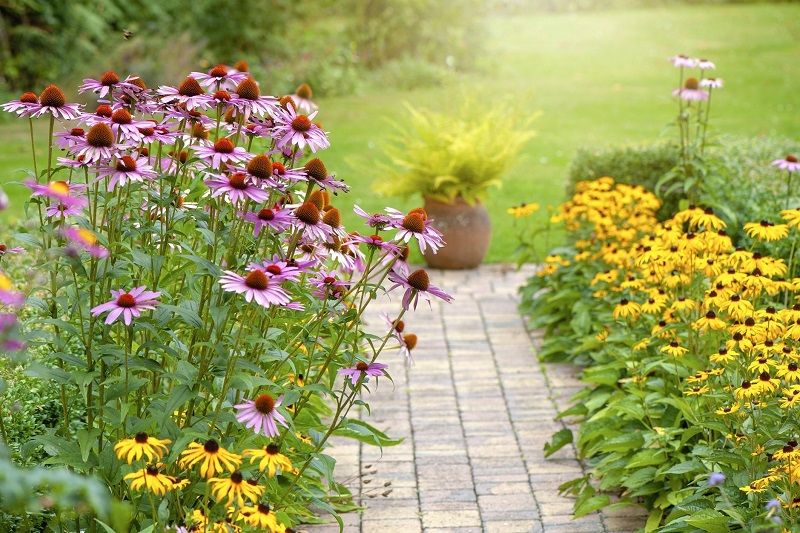
Welcome to the wonderful world of plant care! Whether you’re a seasoned gardener or a novice plant parent, the joy of nurturing and watching your plants thrive is a universal delight. In this comprehensive guide, we’ll explore the ins and outs of plant care, from selecting the right plants to understanding their needs, and maintaining their health. So, roll up your sleeves, grab your gardening gloves, and let’s dive into the art of plant care.
Choosing the Right Plants
Before we delve into the specifics of plant care, it’s essential to start with the basics – selecting the right plants for your space and lifestyle. Here are some factors to consider:
Assess Your Environment
Take a good look at where you want to place your plants. Is it a sunny windowsill, a shaded corner, or an outdoor garden? Different plants have different light requirements, so choose accordingly.
Consider Your Commitment
Are you a busy bee or someone with plenty of time to tend to your plants? Some plants need more care than others, so select ones that match your availability.
Know Your Space
The size of your space can determine the types and number of plants you can accommodate. Some plants are space-hungry, while others are more compact.
Understanding Plant Needs
Now that you’ve chosen your plants, it’s time to get acquainted with their specific needs. Plants, like people, have unique requirements for a happy and healthy life:
Watering Wisely
Proper watering is key to plant care. Each plant has its own moisture preferences. Research your plants’ watering needs and establish a schedule. Remember, overwatering can be just as harmful as underwatering.
Feeding Your Plants
Plants need nutrients to thrive. Fertilize your plants regularly, but don’t overdo it. Follow the recommended dosage on the fertilizer packaging.
Getting the Right Soil
The type of soil your plants are in matters. Some plants prefer well-draining soil, while others thrive in moisture-retentive soil. Ensure your plants are in the right soil mix.
Maintaining Plant Health
Keeping your plants healthy involves more than just the basics. Here are some additional tips to ensure your green friends flourish:
Pruning and Trimming
Regular pruning and trimming help your plants maintain their shape and encourage new growth. Remove dead or yellowing leaves to keep your plants looking their best.
Pest and Disease Management
Keep an eye out for pests and diseases. Early detection and treatment are crucial to preventing infestations and maintaining plant health. Use organic remedies when possible.
Repotting
As your plants grow, they may outgrow their containers. Repotting ensures they have enough space to thrive. Choose a slightly larger pot and refresh the soil when repotting.
Nurturing Your Green Companions
Caring for plants isn’t just a chore; it’s a rewarding and fulfilling experience. The more you invest in your plants, the more they give back in terms of beauty, clean air, and even stress relief. Embrace the journey of plant parenthood with enthusiasm and care, and you’ll reap the benefits.
In conclusion, plant care is a delightful and engaging activity that connects us to nature. By selecting the right plants, understanding their needs, and providing the care they deserve, you can transform your living space into a lush and vibrant oasis. Remember, each plant has its unique personality and requirements, so observe, learn, and enjoy the journey of nurturing your green companions.
FAQs
How often should I water my plants?
The frequency of watering depends on the type of plant and environmental conditions. Check the soil moisture regularly, and water when the top inch feels dry.
What is the best way to prevent pests on my plants?
Regularly inspect your plants for signs of pests, and remove them manually when spotted. You can also use natural remedies like neem oil or soapy water to deter pests.
Do I need to use a specific type of fertilizer for my plants?
Different plants have different fertilizer needs. Look for a balanced, all-purpose fertilizer for most indoor plants. Read the label for specific instructions.
Can I use tap water for my plants?
Tap water is generally fine for most plants, but some may be sensitive to chemicals like chlorine. To be safe, you can use filtered or dechlorinated water.
Is it okay to place indoor plants near a heater or air conditioner?
Extreme temperature fluctuations can stress plants. Avoid placing them near heaters or air conditioners, which can create hot or cold drafts. Maintain a stable environment for your plants.
